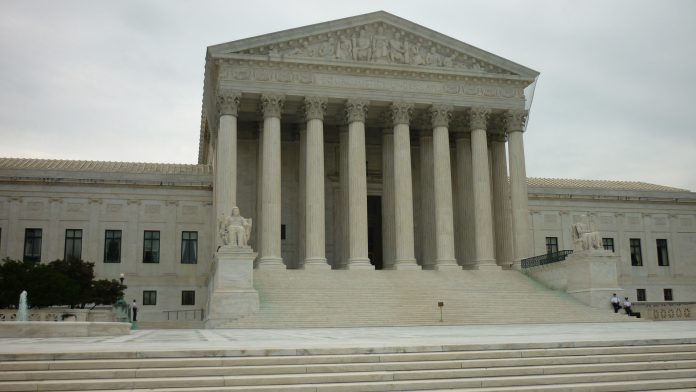The Supreme Court issued a procedural ruling this week in a case concerning Idaho’s abortion ban. The decision allows Idaho hospitals to continue providing emergency abortions for the time being. However, the Court did not definitively resolve the central legal questions surrounding the case.
The ruling follows a series of unusual events. An earlier draft opinion, which largely mirrored the final decision, was inadvertently published online. This leak sparked discussion about the future of abortion rights in the United States.
The Court’s decision hinges on the question of when, if at all, federal law supersedes state abortion bans in cases of medical emergencies. The Biden administration argued that federal law mandates the provision of emergency abortions to protect a pregnant woman’s health. Idaho countered that its law already includes a life-saving exception and that federal law does not require additional allowances.
The majority opinion, delivered by a 6-3 vote, determined that the Court’s involvement in the case was premature. Consequently, the Court reinstated a lower court order permitting emergency abortions in Idaho. This means the legal battle will continue in lower courts, with the possibility of returning to the Supreme Court in the future.
The Idaho case has broader implications for abortion access nationwide. Several Republican-controlled states have enacted abortion restrictions since the landmark Roe v. Wade decision was overturned in 2022. The Court’s decision in this case does not address the legality of emergency abortions in other states.
A similar case is currently pending in the 5th U.S. Circuit Court of Appeals, concerning a Texas abortion ban. The Biden administration is also appealing this decision, potentially setting the stage for another Supreme Court battle on abortion rights. It is unlikely that the Court will consider the Texas case before the fall term.
In conclusion, the Supreme Court’s recent decision on Idaho’s abortion ban provides only a temporary reprieve. The core legal issues remain unresolved, and the future of abortion access in medical emergencies throughout the country is uncertain.
This story first broke on AP. Find the original article here.

























